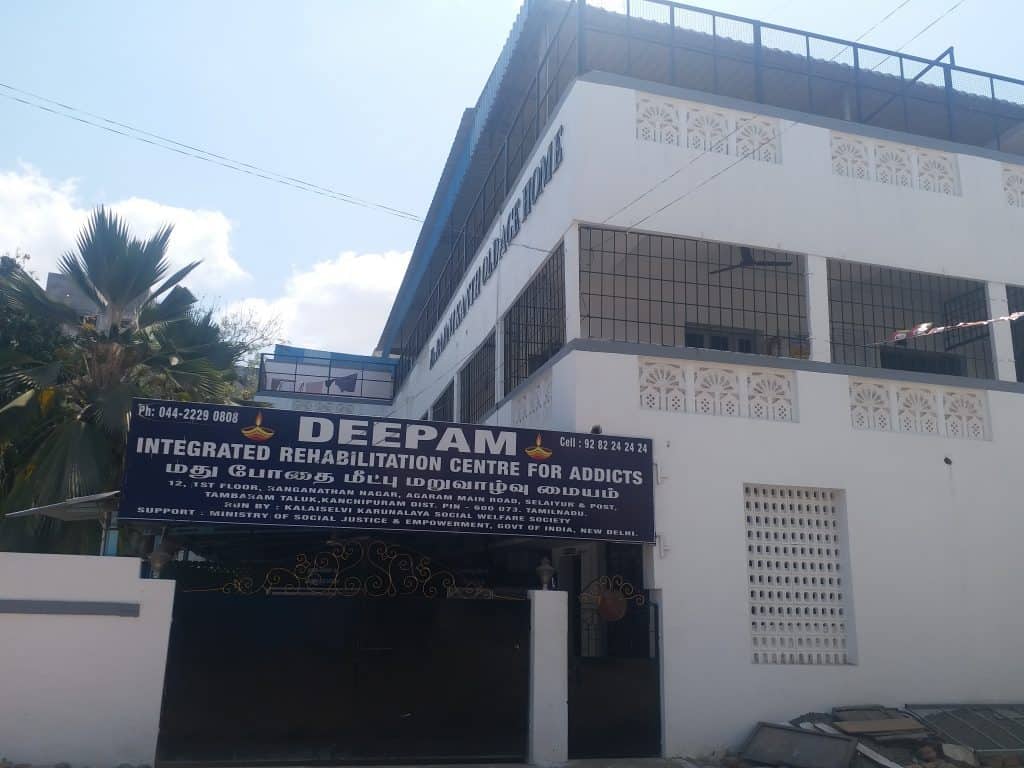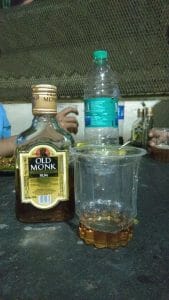In the financial year 2016 -17, the Tamil Nadu State Marketing Corporation Limited (TASMAC), a liquor entity owned by the state government had a turnover of Rs 31, 247.53 Crore and earned a profit of Rs 25.23 crores as mentioned in its annual report. This was after temporarily closing 3321 TASMAC outlets following the Supreme Court’s order of relocating the shops, situated within a distance of 220 meters from the highways. But while the government that is reaping crores of rupees in profits from liquor sales, is it doing quite enough to rehabilitate addicts?
Tamil Nadu is among the top states, with the highest number of alcohol-related problems, according to a survey commissioned by the Ministry of Social Justice and Empowerment, and prepared by the National Drug Dependence Treatment Centre at AIIMS.
There is no exclusive government de-addiction centre in Chennai, as these centres are either merged with government hospitals or with public health centres. De-addiction centres are present in major government hospitals such as Rajiv Gandhi General Hospital, Stanley Medical College Hospital and Institute of Medical Health.
“When it comes to alcohol and drug rehabilitation, patients need a disconnect. Also as alcoholism is a no-pride disease, addicts don’t want the world to know about them. De-addiction centres in Chennai provide no such privacy to the addict, as they are all part of hospitals,” said Dr V Sunil Kumar, Clinical Psychologist and founder of Mind Zone.
Besides the state government and Chennai Corporation, the central government has funded organisations such as Voluntary Health Services (VHS) and Deepam Trust for the operation and maintenance of rehabilitation centres. We visited two centres maintained by Chennai Corporation and the central government to understand how treatment was done.
Gaps in facility
On the narrow lane behind Royapettah government hospital is a Corporation-maintained deaddiction cum primary health care centre. There does not seem to much awareness around it judging by the fact that the centre seems to be more famous among locals as a primary health care centre, rather than deaddiction treatment.
The premises are spic and span. The 13-bedded centre has patients sleeping, reading or meditating. The 15-day treatment at the centre is free, a boon for those belonging to the poor and lower middle classes. But, the corporation has overlooked a few important aspects.
In a few rooms, patients have even occupied the floor, due to the non-availability of beds. The Tamil Nadu State Mental Health Rules, 2013, mandates the 24*7 presence of a psychiatrist and staff nurses. “There shall not be any extra floor beds,” the rules state. But the Corporation centre at Royapettah itself has violated the norms.
“The staff at the centre did not compel me to take the floor. But fearing that my mindset to reform might change if I had to come back later, I compromised. After all, alcoholics are fickle minded,” said Karthi T, who underwent treatment at the centre.
“The general physician is present till the afternoon every day, to treat the patients who come to the primary health care. The same physician addresses the problems of the patients in the de-addiction centre during his time at the facility,” said staff at the Royapettah de-addiction centre. He also said that the psychologist who visits the centre works at other government hospitals. Efforts to contact the Deputy Commissioner, Health in Chennai Corporation went in vain.
At the central government-funded centre, maintained by Deepam Trust, in Camp Road of Tambaram, there are no trained psychologists or psychiatrists. A social worker (who has completed a Masters in Social Work) mans the centre and also counsels the patients when required.
“There are three counsellors to treat 15 patients. All of them are social workers like me. We don’t provide psychiatric treatment to patients,” said a counsellor present at the centre. However, this makes it clear that the centre treats only alcoholism and not inter-linked problems such as anger management and behavioural issues.

The de-addiction centre maintained by Deepam Trust and funded by the central government has no qualified psychologists. Pic: Laasya Shekhar
How effective is the treatment?
Both these centres provide short term treatment. While the centre at Royapettah provides treatment for just 15 days, treatment at Tambaram lasts for one month. Can alcoholism really be treated in such a short span?
“For hardcore addicts, a minimum of three months is ideally suggested to deal with withdrawal symptoms and finally adapt to a sober life. But unfortunately, these centres cannot accommodate patients for more than a month. Regular counselling, yoga and meditation are a must (even after treatment is complete), so that the disease does not relapse,” said K N S Varadan, founder of Freedom Care de-addiction centre. Both these centres fare well in activity based treatment, which includes teaching soft skills to yoga.
Both the centres rely on a drug called Antabuse to reform the addicts. Antabuse tablets such as Disulfiram produce many unpleasant symptoms and must be used with great caution and monitoring. “Addicts should be transformed by counselling about the harsh effects of alcohol and how it ruined them and their families. Administering Antabuse has proved to be fatal in many, who continued to consume liquor even after taking the medicine,” said K N S Varadan.
“A day after the psychiatrist administered Antabuse, my husband drank alcohol and went out. His aggression levels were at a peak; I couldn’t stop him. He lost consciousness and met with an accident. It was only luck that saved him,” said Nirupama C, a house-wife from Poonamalle.
Need for drug rehabilitation centres
While alcohol continues to be the most common addiction, cannabis addiction is also turning out to be a major problem in Tamil Nadu. “Due to the cheap price and easy availability, a lot of youth in Chennai are getting addicted to cannabis. There is also an increasing trend of people using meth crystals and cocaine,” said the director of Narcotics Control Bureau, A Bruno.
Existing de-addiction centres, however, strictly do not take in cases of drug abuse. “It takes strenuous effort and specialised knowledge to treat drug abuse patients. They exhibit extremely aggressive and violent behaviour; we don’t have the manpower and infrastructural facilities to treat them,” said staff at Royapettah de-addiction centre.
With substance abuse and addiction gaining major proportions in Chennai, it is important that the state and central government maintained centres address the gaping gaps in rehabilitation.

How come you made no mention of the TTK rehab center for alcohol de-addiction located in Indira Nagar which has been recognised by UNESCO as a premier de-addiction center. Please get in touch with me as I had to rehabilitate a family member and can give you further information.